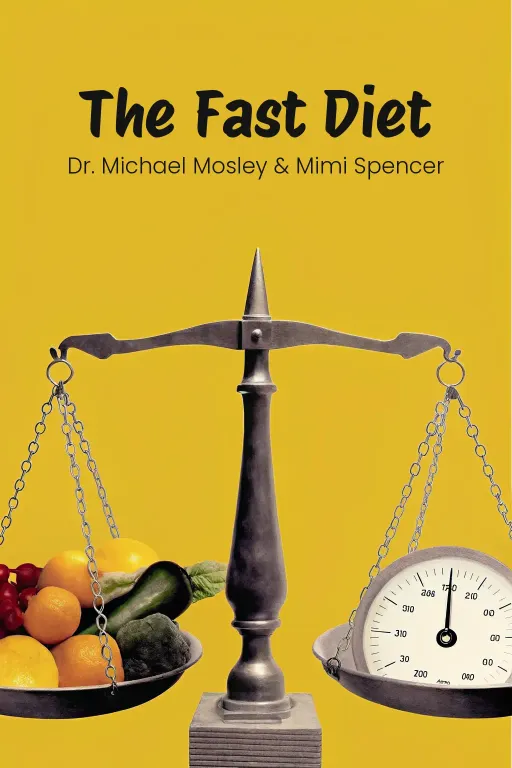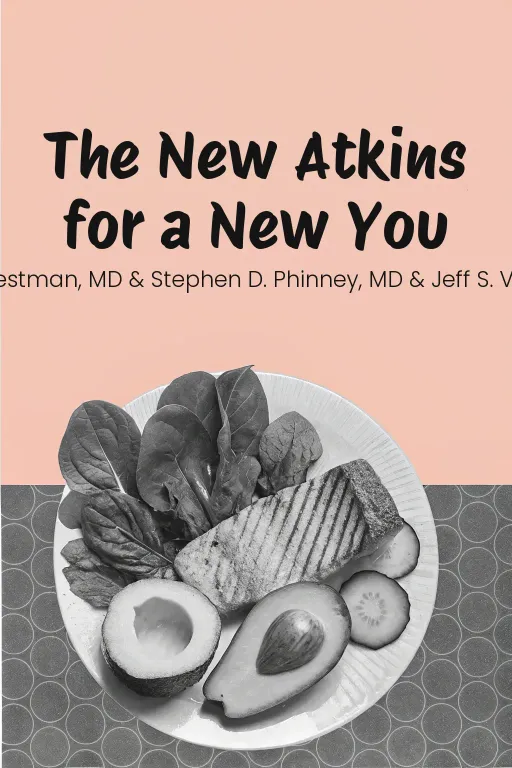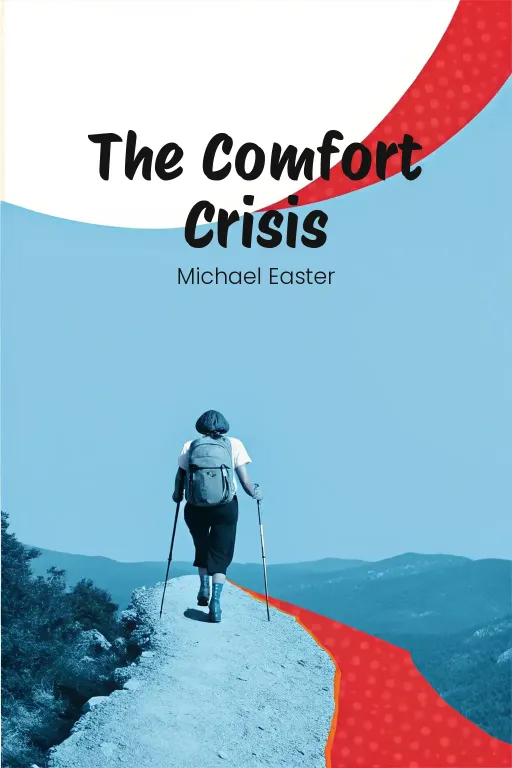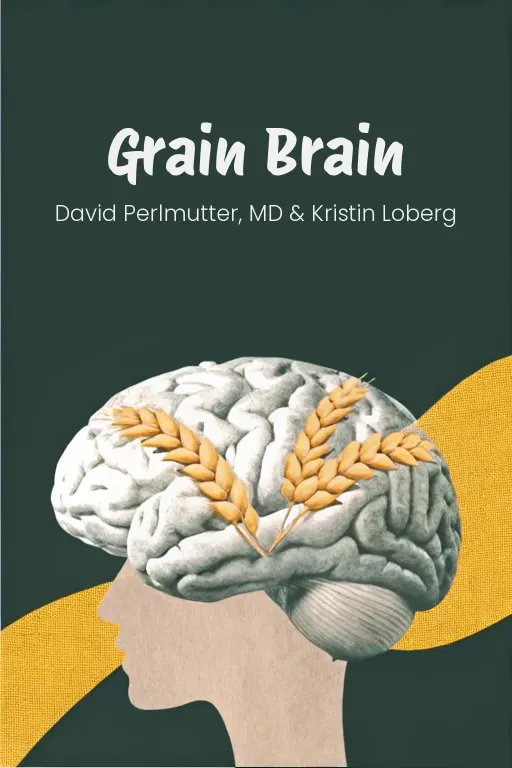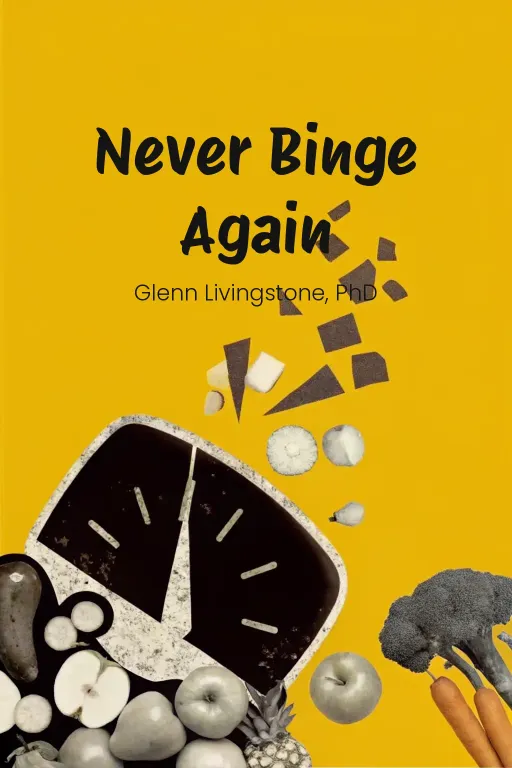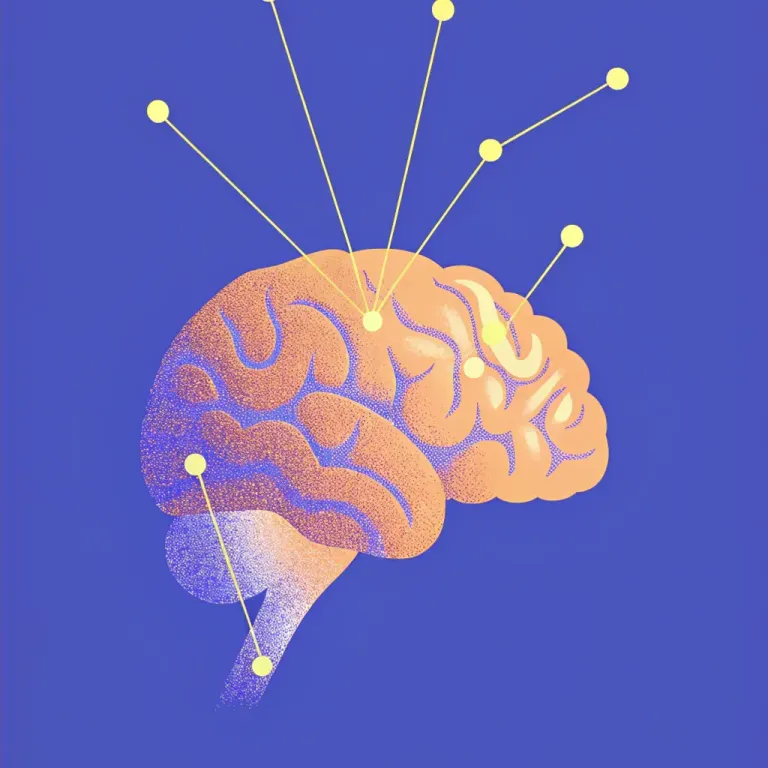
Brainpower Boost: It's Never Too Late!
Podcast by Beta You with Alex and Michelle
Build a Better Brain at Any Age
Brainpower Boost: It's Never Too Late!
Part 1
Michelle: Alright folks, let's jump right in with a question: Ever find yourself struggling to remember names , feeling scattered , or wondering if those little memory lapses are just normal aging… or something else? Alex: Or maybe you've wondered, "Can I actually “boost” my brainpower as I get older? Is it really possible to get “sharper” , no matter my age?" Michelle: Well, today we're talking about a topic that’s, well, in our heads , literally! It’s all about that amazing three-pound organ we carry around. Alex: Exactly, Michelle! We're diving into Keep Sharp, a book by Dr. Sanjay Gupta, and it delivers such an empowering message! Cognitive decline isn't some inevitable part of aging. Actually, science shows we have way more control over our brain health than we ever thought possible. Michelle: Yeah, it busts myths like "Alzheimer's only hits people in their 80s" or "brain games are a guaranteed fix." It's less "doom and gloom" and more, "Okay, here’s what you can actually do about it!" Alex: Exactly! Dr. Gupta gives us real strategies to protect and even upgrade our brains – exercise, diet, sleep, social connections, and challenging your mind. No weird pills or tricks, just practical, science-backed, everyday changes. Michelle: So, here's our plan for today: We’re going to take a look inside your brain, you know, explore how it works, its quirks, and its surprising ability to adapt. Alex: Then, we'll walk you through those five key things that keep your brain in top shape. Michelle: And finally, we'll talk about dealing with brain health challenges – from catching problems early to managing conditions like dementia. We'll even peek at some exciting research that gives us hope for the future. Alex: If you've ever wondered if you can actually take control of your brain's destiny, definitely stick with us! Michelle: Alright, Alex, so where do we even begin unraveling this mystery?
Understanding Brain Health
Part 2
Alex: Okay, let's dive in. I mean, the brain is just mind-blowing, right? It's basically this three-pound blob of soft tissue, but it's the control center for everything, our thoughts, feelings, memories, everything! Michelle: It’s like the ultimate supercomputer, but unlike my laptop over here, it's constantly rewiring itself, right? That's the whole neuroplasticity thing, isn't it? Alex: Exactly! Neuroplasticity is truly amazing. It’s how the brain reshapes itself based on our experiences, what we're exposed to, even when we get injured. It means that even as we get older, our brains can still get stronger, learn new things, and even heal to some extent. Remember that 93-year-old patient in Dr. Gupta’s book? Even at that age, they were mentally sharp because they kept themselves engaged. Michelle: Ninety-three and sharp? That’s something to aim for. But Alex, let's be real, how much of that is just luck? I mean, what's the balance between genetics and what we can actually control? Alex: That’s a great question. Okay, genetics definitely play a role, sure, but the book really emphasizes that our lifestyle has a huge impact, maybe even more than our genes. Staying mentally active, eating healthy, exercising, sleeping enough, managing stress, all of these things aren't just trendy concepts, they're scientifically proven ways to keep your brain healthy. Michelle: Scientifically proven, you say? Is this just wishful thinking? What's the solid evidence behind all of this? Alex: Well, let's take neuroplasticity. It’s been proven in so many studies. We've seen how stroke patients can regain skills through therapy that rewires their brains, and there are even well-known cases like Phineas Gage, remember him? He was the railroad worker in the 1800s who had that accident where an iron rod went right through his head. Michelle: Right, Gage. He went from being a pretty calm guy to kind of... difficult, right? His whole personality changed. Alex: Exactly. The rod damaged his frontal lobe, which is so important for decision-making and controlling our emotions. And what's amazing is, he lived and adapted even after losing part of his brain. It really shows how resilient the brain can be, even with major trauma. Michelle: That's pretty incredible, and it's good to know that recovery is possible. But, let’s switch gears here. You mentioned that some memory lapses are just normal. How do we tell the difference between what's normal and when we should actually worry? Alex: That's a really important point. Cognitive aging is a normal part of getting older. It’s those harmless things that happen to all of us, like forgetting where you put your keys or blanking on someone’s name. It’s just that our brain's processing speed slows down a bit, but it doesn’t necessarily mean anything serious. Michelle: So, normal aging is like watching your Wi-Fi connection get a little slower... Alex: Yes exactly. On the other hand, cognitive decline is much more serious. It’s when forgetfulness starts to really affect your daily life, like forgetting familiar routes, struggling to follow conversations, or having trouble making decisions. That’s when we start to think about conditions like Alzheimer’s or other forms of dementia. Michelle: Right, I get it. But you also said that stress, inflammation, and conditions like diabetes can speed up cognitive decline. How does all that fit in? Alex: Okay, chronic stress is a big factor. When we're constantly stressed, our bodies release cortisol, which is the stress hormone. And over time, high levels of cortisol can damage the hippocampus, which is essential for memory and learning. It’s the same with inflammation from things like diabetes or heart problems. If you don't manage these things, they can really speed up the aging process in your brain. Michelle: So, it’s not just about reducing stress for the sake of feeling good, it's about protecting your hippocampus too. Sounds like it lives a stressful life! Alex: Exactly. But the good news is, we can do something about it. Regular exercise, mindfulness, staying social, all of these can counteract those negative effects. Michelle: Speaking of action steps, I think a lot of brain myths throw people off track. There’s so much misinformation out there. Alex: Absolutely. These brain myths just cause unnecessary fear and confusion. Like the one about "we only use 10% of our brain." We need to stop believing that one! Brain scans show that almost every part of our brain is active, even when we're just daydreaming. Michelle: A ten-percent brain would explain some of my Monday mornings, though... Alex: Maybe. But another big myth is that older adults are doomed to forgetfulness. That's just not true! Actually, the book mentions areas where older people often do really well, like managing emotions and making social judgments. Michelle: So you’re saying that age might dull some things but sharpen others? Alex: Exactly, Michelle. And here’s another myth: that the brain stops developing after childhood. We know now that the brain keeps making new neurons, which is called neurogenesis, even in adulthood. Things like exercise and challenging your mind can make this happen, showing that the brain can keep evolving as we get older. Michelle: Okay that’s good to know. So basically, you're saying my brain isn't a static hard drive, but more like an app that keeps updating, as long as I don’t ignore it? Alex: That’s a “really” good way of putting it, Michelle. The brain is so dynamic, and taking care of it “really” makes a difference. It’s all about building habits that help it grow and protect it from declining.
Pillars of Brain Health
Part 3
Alex: So, having covered the brain's basics, let's zoom in on what you can actually “do” to boost your brainpower. We're talking about the key pillars of brain health. Think of them as the foundational supports that keep your cognitive functions strong and healthy over time. Michelle: Pillars, eh? Are we talking about some unattainable health guru stuff here, or something that’ll actually fit into a regular person’s life? Alex: That's the best part! These pillars are all about everyday habits. We're talking about exercise, nutrition, social engagement, sleep, and cognitive challenges. Each one has proven benefits, and they all work together, amplifying each other’s effects. Let’s dive into the heavyweight champion first: exercise. Michelle: Exercise! Kicking things off with mental push-ups, are we? What makes a treadmill session so special for the brain? Alex: It's more than just hitting the treadmill. Aerobic exercise, in particular, fires up neurogenesis—that's the creation of new neurons. It’s super effective in the hippocampus – the brain's memory center. Plus, it gets your blood flowing, tackles inflammation, and makes your brain more adaptable. The book mentions this retired teacher in her seventies who was fretting about losing her edge after retirement. She started doing group aerobic classes three times a week, and her memory and decision-making noticeably improved. Cognitive tests backed it up too. Michelle: Hold on… So, she basically rebooted her brain with a “group gym” experience? Was she already a fitness fanatic, or what? Alex: Not at all. She was hesitant at first but gradually made it part of her routine. The key is consistency, not some crazy, month-long fitness blitz. Moderate activity, like a brisk walk or a swim, can be incredibly powerful. Michelle: Got it. So, leave the tire-flipping to the CrossFit folks, unless that's your thing. Speaking of powering up the gray matter – what about fuel? Let's talk food. Alex: Absolutely, nutrition is the second pillar, and it's just as vital. The connection between diet and brain health is crystal clear. The book talks about the MIND diet, which is a combo of the Mediterranean and DASH diets, designed specifically for long-term brain health. It puts the spotlight on leafy greens, berries, nuts, olive oil, and fatty fish while cutting back on sugar, red meat, and saturated fats. Michelle: So, is this another "superfood to the rescue" spiel, or is it about overall balance? Because I'm starting to reach my kale limit. Alex: It’s about the eating pattern as a whole, not just singling out one ingredient. There was this person with mild cognitive impairment who started following the MIND diet and taking omega-3 supplements. In six months, they saw noticeable improvements on cognitive tests. That's how much the right mix of nutrients can do! Michelle: Interesting. So nutrients actually matter – surprise! And omega-3s – you mean the stuff in salmon and sardines – are the rock stars here? Alex: Exactly. Omega-3s support neuron health and dial down inflammation in the brain. Think of it as lubricating the machinery so your brain can process information smoothly. Michelle: Got it. Fish isn't just dinner; it’s a brain strategy now. So, we’ve got movement and grub covered. What’s next – more broccoli, or something I might actually enjoy? Alex: Something you might actually enjoy: social engagement. It’s the third pillar. Research shows that real, meaningful interactions have a huge impact on our cognitive and emotional health. Social connections fire up neural pathways that are linked to cognition and reduce stress, and both of those protect your brain. Michelle: Okay, but what if you’re not naturally a social butterfly? Not everyone thrives on small talk. Alex: You don't have to be. It's about genuine connection, not forced interaction. There was this older widow, Helen, who became isolated after her husband passed away. Her family encouraged her to join a senior book club, and she ended up organizing events. Her mental clarity and emotional health improved significantly because she was doing something meaningful. Michelle: So no pressure to tick boxes or attend awkward cocktail parties. Just find connections that resonate. Even introverts can get behind that. What about pillar number four? If I remember correctly—pun intended—you mentioned sleep? Alex: Yes, sleep hygiene. Sleep is when the brain flushes out waste, including beta-amyloid, which can build up and lead to issues like Alzheimer's. Skimping on sleep messes up this cleanup process, which increases risks down the road. One example from Dr. Gupta’s book is this entrepreneur who had persistent brain fog and memory issues. Once she committed to a solid 7-8 hours of quality sleep, her clarity and focus bounced back in months. Michelle: It always comes back to sleep, doesn’t it? Put down the phone at night – got it. I need those beta-amyloid janitors on the job. Good point. What's the last pillar? Alex: Finally, cognitive engagement. Lifelong learning and mental challenges build up our cognitive reserve, and this protects against age-related damage or decline. The book tells the story of a retired engineer who learned to play the piano at 68. It reduced his anxiety and improved his information-processing speed. Engaging your brain in new ways does wonders. Michelle: So puzzles, languages, hobbies – anything that makes my neurons sweat a little can keep the brain sharp? Alex: Bingo. It’s about exercising the brain in diverse ways. Keeping those mental muscles flexible and adaptable – no matter how old you are. Michelle: I’ve got to say, Alex, these pillars make brain health sound both possible and practical.
Approaching Brain Diseases
Part 4
Alex: Okay, so now, building on our brain health foundation, let's shift from prevention to the complex world of brain diseases. I’m talking Alzheimer's, what current research tells us, available interventions, and how caregivers navigate all of this. Michelle: Right, so we're diving into the deep end now— big stuff, starting with Alzheimer’s. What makes it such a formidable foe when it comes to brain health? Alex: Alzheimer’s is really more than just “losing your memory,” you know? It’s a disease driven by structural changes in the brain. The main culprits are the buildup of beta-amyloid plaques and tau protein tangles. These disrupt neuron communication, eventually leading to cell death. But—and this is key—just finding these plaques and tangles doesn't guarantee someone will actually have dementia. Michelle: Hold on—are you saying someone can have these damaging plaques without it affecting their cognitive function? How does that work? Alex: That's where cognitive reserve comes in—and, it’s a game-changer, really. Think of it as a safeguard your brain builds over time through education, engaging activities, an active lifestyle. There was this fascinating case in South America! It showed that some individuals with severe beta-amyloid buildup—but who remained mentally sharp—had a cognitive reserve so strong it offset the physical damage, at least for a while. It just shows how our choices can really stack the odds in our favor. Michelle: So, it's like a poker game? You're dealt a bad hand with those plaques, but you have a personal stockpile of chips—your reserve—that keeps you in the game longer? Alex: Exactly, Michelle. And genetics? They add another layer. Certain mutations, like in the APP or presenilin genes, are linked to rare, early-onset Alzheimer's. Then you have the APOE4 gene variant, which is more common and increases the risk for the late-onset form. But even with APOE4, it’s just a risk factor. It doesn't guarantee anything. Lifestyle really matters. Michelle: Genes might load the gun, but your habits pull the trigger. Got it. But you mentioned that diagnosing Alzheimer's isn't always straightforward. Why is that? Alex: Well, partly because of gender-based nuances. They can complicate things. Women, for example, tend to do better than men on verbal memory tests in the early stages of dementia. Sounds like a plus, right? But it can actually delay diagnosis because standard tests might miss those subtle signs. This means women are getting diagnosed later, when the disease has progressed further. Michelle: Wow. So, being articulate early on can actually work against early detection for women. Any real-life examples to illustrate this? Alex: Yeah, definitely. Take Maria. She was a caregiver for her mother. Her mom had such strong verbal skills that she aced those memory-related tests, even though Maria noticed those everyday lapses—like forgetting appointments or repeating herself. By the time her mom was diagnosed, it was pretty late, and those much-needed interventions had already been delayed. Stories like Maria’s highlight why we urgently need gender-sensitive diagnostic tools. Michelle: That must've been incredibly frustrating for her. And it's not just diagnosis that's tough—being a caregiver is just… huge. What kind of toll are we talking about here? Alex: Significant. Caregivers dedicate massive amounts of time—nearly 18.1 billion hours annually are spent in unpaid care, according to the Alzheimer’s Association. And financially? They face real strain, averaging over $10,000 out-of-pocket each year. But the emotional cost? Often, it's even more devastating. Daily stress, isolation, burnout—they’re incredibly common. Michelle: I can't imagine that pressure. Did the book offer suggestions on how caregivers can handle these challenges? Alex: Absolutely. One caregiver described the experience as “a desperate scramble to stay in control” every single day. But it also highlighted ways to make things easier, things like creating advanced care plans. Less than 30% of American adults actually have these! This means families often face crisis decisions without any preparation. Proactive planning, though, can really reduce stress for both patients and caregivers. Michelle: Let's talk solutions. Early detection seems like it would play a huge role in lessening that scramble you mentioned. Alex: Totally. Advances like amyloid PET scans and cerebrospinal fluid analysis, for example, have made it possible to detect Alzheimer's earlier than ever before. They identify biomarkers like beta-amyloid or tau proteins. Early diagnosis like that—it lets doctors and families get ahead of the symptoms with the right interventions. Michelle: Fascinating. But how do you tell the difference between Alzheimer's and, say, other conditions? I've heard infections can mimic dementia. Alex: That's a great point. Conditions such as UTIs, especially in older adults, can cause confusion or memory issues that can look a lot like dementia but are actually reversible with treatment. Similarly, vascular dementia, which comes from strokes or poor blood circulation to the brain, can have overlapping symptoms with Alzheimer's. Addressing these underlying issues—through blood pressure control or diet—can slow or even improve cognitive decline. It shows how important thorough evaluations are! Michelle: So, someone being treated for memory problems might not even have dementia? That must make diagnosis incredibly tricky. Looking beyond just identifying the problem, though… once a person knows what they're dealing with, what treatment options are on the table? Alex: Well, for Alzheimer's, treatments today mainly focus on symptom management. Medications such as Donepezil or Memantine can help with memory and communication, but they don’t stop the disease from progressing. But there’s really promising research looking into vaccines that target beta-amyloid and tau proteins. They're still in early stages, but animal studies suggest they could not only manage but actually modify the disease pathways. Michelle: Vaccines that attack the cause instead of just the symptoms? That's revolutionary—but how far off are we from seeing this in actual patients? Alex: Therapies targeting the root causes of Alzheimer's are still in the pipeline. Human trials are underway. In the meantime, lifestyle interventions, like adopting brain-friendly diets—the MIND diet, for example—have shown real promise in preventing or delaying the disease’s onset. Long-term studies even suggest a potential risk reduction of up to 53% for those who “really” stick to these principles. Michelle: Okay, so hope is on the horizon—but we still have work to do. And for more advanced cases, care beyond medication must be essential, right? Alex: Absolutely. Holistic approaches to managing Alzheimer's prioritize both the patient and their caregivers. For patients, person-centered care ensures dignity and joy. It focuses on activities that align with their interests. For caregivers, resources like support networks or respite care become essential to improve emotional resilience and reduce burnout. Michelle: And what about fresh ideas? Anything groundbreaking? Alex: Well, De Hogeweyk, this dementia village in the Netherlands, offers a really inspiring model. It recreates a safe, small-town environment where residents can lead lives that mirror their former routines. This kind of environment fosters autonomy without sacrificing safety, and it “really” exemplifies what compassionate care can look like. Michelle: Alex, everything we’ve dived into today “really” highlights how multifaceted dealing with brain diseases truly is—from the science to the caregiving and everything in between.
Conclusion
Part 5
Alex: So, what we've really discovered today is that brain health isn't this impossible goal or something you only worry about when things are falling apart. It's a real journey, right? It starts with just understanding the basics of how our brains function, ditching those old myths about aging and inevitable decline, and really embracing the power we have through lifestyle choices, you know, those five pillars we talked about. Michelle: Exactly. We've seen that staying active, eating smart, connecting with people, prioritizing sleep, and challenging our minds aren't just good ideas, they're like, essential for keeping our brains in top shape. It's kind of like preventative maintenance for our minds, isn't it? Alex: Absolutely. And when we're talking about brain diseases like Alzheimer's, catching them early, making those lifestyle adjustments, and even preparing for caregiving, if it comes to that, can make a huge difference for both the people affected and their families. Michelle: So, the bottom line is, whether you're just starting out in life or well into it, your brain is adaptable, it's tough, and it's worth the investment. Don't wait. Start building those good habits now. It's not too late. Alex: Definitely! Because prevention isn't just a strong move, it's empowering! Those small, consistent changes can “really” add up to big improvements in how healthy your brain is over time. Michelle: So, think about this, everyone: what’s one small thing you can do today to protect your brain down the road? Maybe it's a brisk walk, catching up with an old friend, or swapping that greasy takeout for a Mediterranean salad. Whatever it is, your brain, and your future self, will definitely thank you for it. Alex: Let’s keep talking about brain health, not just here, but in our everyday lives and communities. Because the sharper we are as individuals, the better and stronger we all become together.

